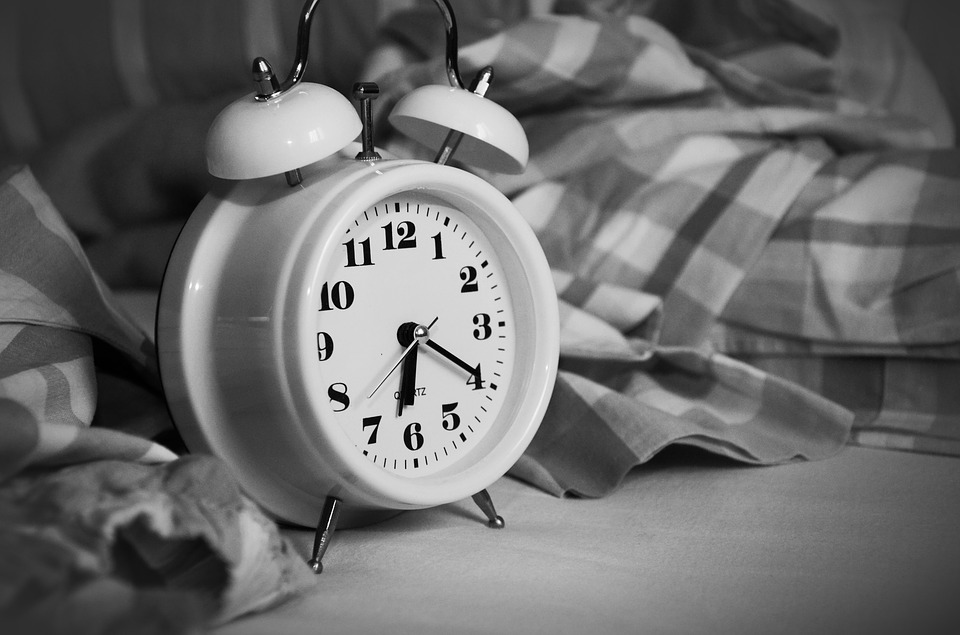This is Part 1 in my article series How I Overcame Insomnia in 10 Steps.
It’s very difficult to address a problem if you don’t know what’s causing it. The first step to regaining control of your sleep health is to get some insight into what triggers it.

The most common causes for insomnia are stress, poor mental health, irregular sleep patterns and poor sleep hygiene – these are the long term factors that contribute to insomnia. In the long run, we need to address these root causes in order to improve our sleep over time.
But insomnia is also affected by short term, immediate triggers. Understanding these can give us insight into preventing bouts from occurring, by avoiding our triggers.
In my case, I’ve had bouts of insomnia since adolescence, but this most recent one was caused by returning to university as a mature student. The stress, the inconsistent start times of lectures, and the late nights finishing assignments after my kids had gone to bed – all contributed to an awful sleep routine.
Keep a Diary
I started by keeping a diary of my sleep (if you’re using a sleep tracker app, you could combine this data) and the things I had been doing that day. You can be as vague or as detailed as you like here, but bear in mind the more detail you include, the more useful the diary will be.
Include things like, what you’ve eaten and at what time, your activities throughout the day, what you watched before bed, how you felt that day emotionally, etc.
Over a week or two, tracking your activities like this will help you to identify patterns in your sleep cycles.
Food and Drink
For example, I noticed that I struggled to sleep particularly if I’d eaten too late at night. Obviously, my digestive system was still working away and preventing me from sleeping.
I adjusted this by making sure I had my last meal earlier in the evening. Of course, this did not fix my sleep problems in one fell swoop but it certainly helped overall by removing one of the many triggers.

Another really common trigger is caffeine. I now limit my caffeime to before lunchtime. Because I just love the taste of coffee, I have found a good quality decaffeinated coffee that I drink now in the afternoons.
Mental Health
Another trigger I identified was my mental health. I talk more about mental health in another article, but I’ll mention it here as it was a key turning point for me to discover how much my mental health was affecting my sleep patterns.
If you suffer with anxiety or depression, or if you’re under a lot of stress, if you’re recovering from trauma or have experienced a bereavement, it is always worth speaking to your doctor, as they may be able to help you.
As always on this site, I prefer to find alternative methods to medication, but do check with your doctor in case medication is appropriate short term.
Emotional State
Look at how your mental health affects you in the evenings. Try to assess how you are feeling in the hour or two before you go to bed. Do you feel relaxed? Sleepy? Content? Or are you feeling anxious, restless, wound up?
It might sound obvious, but if you’re not relaxed, you’re going to struggle to fall asleep. Start looking for ways you can remove a little bit of that stress from the evenings – instead of watching a tense thriller, choose a calmer film or tv show. If you’ve been reading news that makes you angry or upset, try limiting that before bed, and read some relaxing fiction instead. I talk more about media choices here.
In my case, I realised that getting wound up about the state of the world right before bed time was doing me no favours at all! I made a conscious decision to stop reading the news at night and started a routine of more relaxing evening activities, such as learning a language on DuoLingo, reading fiction, listening to audiobooks, warm baths.
Summary
- Start keeping a journal of your daily activities.
- Identify patterns where your sleep is better or worse.
- Assess your emotional state in the evenings.
- Identify your triggers and begin to take steps to avoid them.

[…] Understand your insomnia triggersIt’s very difficult to address a problem if you don’t know what’s causing it. In my case, I’ve had bouts of insomnia since adolescence, but this most recent one was triggered by returning to university as a mature student, the stress, the inconsistent start times of lectures, and the late nights finishing assignments after my kids had gone to bed. […]
[…] there are lots of factors that affect how well we sleep. We’ve discussed mental health and triggers, and how the media we consume affects our state of […]